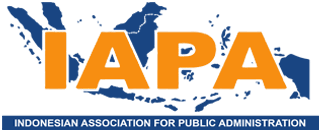IMPLEMENTASI KEBIJAKAN PENGENDALIAN PENYAKIT DEMAM BERDARAH DENGUE (DBD) DI KECAMATAN TAMBORA KOTA ADMINISTRASI JAKARTA BARAT
DOI:
https://doi.org/10.30997/jsh.v11i2.3200Abstract
Penyakit DBD termasuk masalah kesehatan di Indonesia yang memerlukan penanganan serius, mengingat DBD termasuk penyakit yang sangat potensial untuk menjadi Kejadian Luar Biasa (KLB). Iklim tropis merupakan media tumbuhnya penyakit DBD, termasuk DKI Jakarta - ibukota negara Indonesia. Pada tahun 2018, Jakarta Barat menempati posisi teratas untuk kasus DBD dibanding kota administrasi lainnya. Penelitian ini mengambil fokus di Jakarta Barat, khususnya di Kecamatan Tambora sebagai kecamatan terpadat di Indonesia tetapi juga di Asia Tenggara. Jumlah penduduk yang padat dan lingkungan terbatas, memungkinkan bagi penularan penyakit DBD secara cepat.
Penelitian ini menggunakan metode kualitatif untuk memahami bagian kehidupan sosial manusia berdasarkan gambaran menyeluruh (holistic) dan kompleks dengan informan berjumlah 15 orang.
Penelitian ini menggunakan enam karakteristik primer implementasi kebijakan dari Van Horn dan Van Meter, yaitu : 1) Policy standard and objective, 2) The resources and ancentive made available, 3) The quality of inter-organizational relationships, 4) The characteristics of the implementation agencies, 5) The economic, social and political environment dan 6) The disposition or response of the implementers.
Hasil penelitian menunjukan bahwa implementasi kebijakan masih belum efektif, sebagaimana teori Van Meter & Van Horn yang mengungkapkan bahwa enam karakteristik tersebut harus ada dan terintegrasi. Hasil penelitian mengungkapkan bahwa selain ke enam karakteristik implementasi kebijakan, perlu ada interpretation yang sama dalam hal keterkaitan pengendalian penyalit DBD di setiap Perangkat Daerah yang ada di Pemerintah Jakarta Barat maupun pelaksana-pelaksana kebijakan tersebut di Kecamatan Tambora Jakarta Barat.
DHF is a health problem in Indonesia that requires serious treatment, considering DHF is a disease that has the potential to become an Extraordinary Event. The tropical climate is a medium for the growth of dengue fever, including DKI Jakarta - the national capital of Indonesia. In 2018 the West Jakarta Administrative City occupies the top position for dengue cases compared to other administrative cities. This research takes focus in West Jakarta, specifically in Tambora Subdistrict as the most populous sub-district in Indonesia but also in Southeast Asia. The population is dense and the environment is limited, allowing for rapid transmission of DHF.
This study uses qualitative methods to understand parts of human social life based on a holistic and complex picture with 15 informants.
This study uses six primary characteristics of the implementation of policies from Van Horn and Van Meters, namely: 1) Policy standards and objectives, 2) The resources and threats made available, 3) The quality of inter-organizational relationships, 4) The characteristics of the implementation agencies, 5) The economic, social and political environment and 6) The disposition or response of the implementers.
The results showed that the implementation of the policy was still not effective, as the theory of Van Horn and Van Meter revealed that the six characteristics must be present and integrated. The results of the study revealed that in addition to the six characteristics of policy implementation, there needs to be the same interpretation in terms of the relationship between DHF control control in each Regional Apparatus in the West Jakarta Administrative City Government and the implementers of the policy in the Tambora District, West Jakarta Administrative City.

















